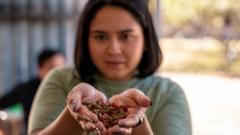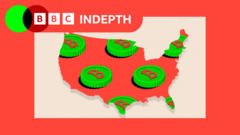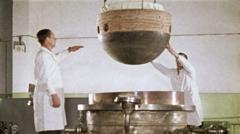Hugo Daniel Chávez is reimagining waste in Honduras, turning what some see as rubbish into a valuable green business opportunity. As project manager for the NGO Sustenta Honduras, Chávez and his team are producing soap and dog food using recycled cooking oil, which is abundant in the country due to the popularity of deep-fried foods like chicken and plantains.
Honduras grapples with its significant waste problem, especially from cooking oil. Each year, millions of tonnes are consumed, often used multiple times before being discarded improperly, perpetuating health hazards and environmental degradation. "We have so many businesses and domestic practices that create waste, so we are trying to transform waste and give it a second life,” Chávez stressed.
Inadequate disposal methods of cooking oil can have dire consequences. Dumping it down the sink can lead to pipe damage and groundwater contamination, while improperly discarded waste can harm local freshwater supplies and crops. Sustenta's solution aims to incentivize proper disposal of this waste, encouraging businesses to participate in a sustainable model for waste management.
The project, which derives inspiration from earlier efforts to create biodiesel from used oil—a market that does not currently exist in Honduras—has struck a chord both locally and internationally. "We decided to produce products that can do well in our domestic markets," explained Ricardo Pineda, the NGO's executive director. By purchasing used cooking oil from participating businesses, Sustenta turns potential waste into useful products while reducing the temptation for illegal dumping.
Their innovative approach has garnered recognition, including a $20,000 prize as part of the 2023 Youth4Climate Energy Challenge co-led by the United Nations. It marks a step towards creating a circular economy in the region, one that not only minimizes environmental harm but also empowers communities, particularly women and youth disproportionately affected by climate change.
As part of this initiative, Sustenta offers a regular pick-up service for used cooking oil, providing a financial incentive for locals to sell their waste rather than leaking it into harmful channels. They even struck a partnership with Walmart, ensuring a steady supply of used oil and greases from its operations, which will further enable product scaling.
The company processes the collected oil at its facility in Comayagua, employing a saponification method—reaction of fats with alkali—to produce soap. In addition, the team emphasizes sustainability by incorporating waste materials from nearby water purification plants into their processes, reinforcing their circular approach.
"Next to our plant, someone else has a water purification plant, and we use the water that plant cannot purify for our cooling system," Pineda elaborated. The project's soap, priced at an affordable rate, generates significant monthly revenue while remaining committed to reinvesting into sustainable practices.
Through this endeavor, the youth-led organization defines its mission as not just environmental reform but also creating real-world solutions to pressing waste issues—a refreshing approach amidst conventional advocacy. "We want to create actual solutions and not sit around only talking about what could be done," Pineda asserted, showcasing a proactive stance against climate challenges while fostering local economic growth.






















